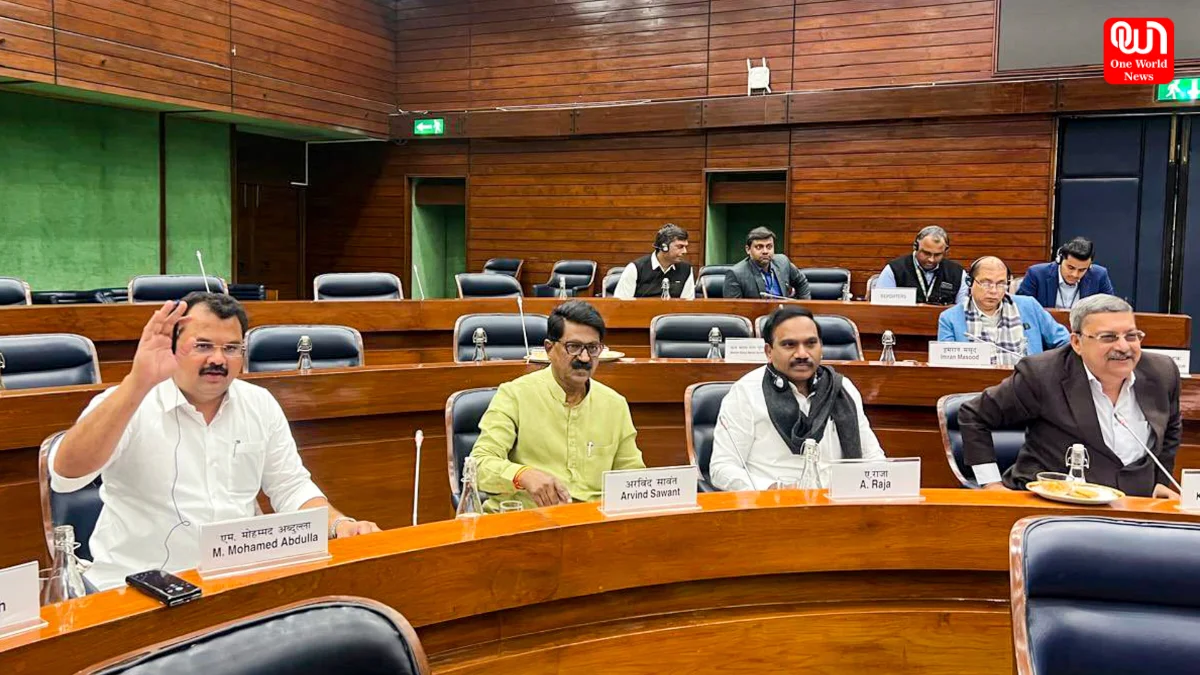Waqf Amendment Bill: Centre Braces CAA-Type Resistance, Trusts NDA Numbers
Waqf Amendment Bill- Centre Ready for Resistance on Parts Similar to CAA.
Waqf Amendment Bill- Centre Confident of NDA Numbers Despite ‘CAA-Type’ Resistance
The proposed Waqf Amendment Bill has become perhaps one of the hottest ingredients of law these days, provoking extreme reactions among the Muslim community as well as the political circles. The Centre’s confidence firm in the NDA majority notwithstanding, it expects some level of resistance on the same lines the implementation of the Citizenship Amendment Act (CAA) had to face.
At the center of the controversy surrounding the bill is the attempt to modernize the governance of Waqf properties, religious endowments entrusted by Muslims for charitable purposes. The amendment proposes several reforms, such as changing the composition of the Central & State Waqf Boards to improve transparency and to enable better management and utilization of these properties. However, they are perceived by many as interventions into religious affairs concerned with the Waqf. Critics argue that changing the procedure would dilute the traditional autonomy granted to the Muslim community in matters relating to its endowments.
Meanwhile, the Centre says it is willing to push through with the reforms, warning of resistance similar to that faced during the debates on the CAA, where opposition mounted before then. The kind of wide protests and dissent that accompanied the CAA could be expected to follow the Waqf Amendment Bill, which, reportedly, threatens to take away from community leaders and organizations their long-held constitutional guarantees under Article 26. Article 26 grants the right to religious communities to manage their own affairs without interference. On the other hand, opposition parties accuse that by bringing in non-Muslim members in Waqf Boards and altering the role of survey commissioners, the traditional safeguards would therefore be weakened and the Waqf system made susceptible to mismanagement or even politicization.
Nevertheless, the NDA government is equally confident. The political insiders point to the numbers delivering support to the government in Parliament, suggesting even noise from the opposition should not hinder the legislative majority from getting the Bill passed. The ruling coalition argues that the reforms would prevent wastage of valuable assets and ensure that the benefits reach the intended beneficiaries by making the management of Waqf properties more efficient and transparent. The Administrative process would be improved, thereby eliminating opportunities for governmental mismanagement, which is why the present government believes that this Bill will be in the long-term interest both of the state and of the community.
The debate has set off a series of heated discussions in public fora and in the halls of the legislature. Followers of the amendment uphold that modernization is important to counter current administrative problems and put a check on corruption in the management of Waqf properties. They argue that similar reforms in other areas have advanced governance and hence consumption of resources. Meanwhile, the opposition has started paralleling the current debate with the ones during CAA, asserting that an encroachment into religious rights could lead to communal tensions.
Read More: Ordnance Factory Day 2025: Background, Themes and Significance
With the Bill nearing introduction into Parliament, the Centre once more braced itself for protests and legal challenges that have become synonymous with previous controversial legislative battles, although, with numbers to back it and a well-defined vision for reform, the Government is determined to forge ahead. The outcome of this legislative exercise will hold huge implications, not only for Waqf property management but also for the discourse around state intervention in religious issues. Ultimately, the passing of the Waqf Amendment Bill will serve as a litmus test for the Government in its balancing of modern governance imperatives with the need to safeguard religious autonomy.
We’re now on WhatsApp. Click to join.
Like this post?
Register at One World News to never miss out on videos, celeb interviews, and best reads.








